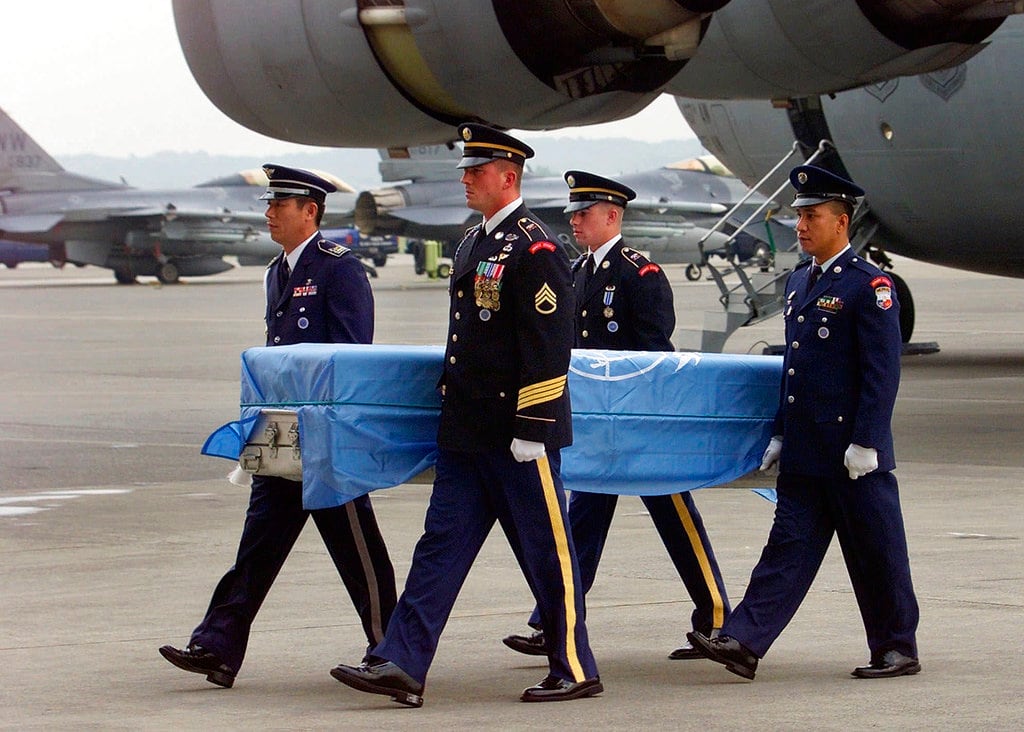WASHINGTON — Plans to repatriate the remains of hundreds of U.S. servicemembers killed in the Korean War decades ago are still on hold, but House lawmakers moved Tuesday to make sure military officials have money to pay for that work once it begins.
Lawmakers added $10 million to their proposed fiscal 2019 defense appropriations plan to cover the costs of transporting and identifying those remains by the Defense POW/Missing Persons Office.
The move represents a budget boost of more than 6 percent over the agency’s anticipated budget, but lawmakers argued the extra money is needed to ensure the important work can proceed without interruption.
RELATED

“There are currently over 200 missing servicemembers in the process of being returned to the United States,” said Rep. Rick Allen, R-Ga. and a sponsor of the measure.
“My colleagues and I want to ensure that the (agency) has the resources it needs to identify the remains and carry out this important mission so that families can finally find an eternal resting place for their loved ones.”
The provision still must be agreed to by the Senate and approved by all of Congress as part of a broader defense spending plan before it becomes law.
But the effort has gotten broad attention and support since President Donald Trump’s summit with North Korean leader Kim Jong Un earlier this month, where the return of U.S. troops remains were included in a post-meeting agreement regarding future relations between the countries.
More than 35,000 Americans died on the Korean Peninsula during the war, which lasted from 1950 to 1953. Of those, 7,700 are still listed as missing in action, with 5,300 believed to be on North Korean soil.
Defense officials have said there are about 200 sets of U.S. remains currently identified by North Korean officials that they are hopeful of recovering quickly, once political and logistical issues are settled.
Trump on several occasions has hinted that work will start soon, but military leaders have not made similar promises.
U.S. and North Korean officials have worked on the issue of returning American remains in the past. From 1990 to 2005, 229 fallen service members were identified and returned to America.
But those efforts were suspended 13 years ago amid deteriorating political relations between the countries.
Leo covers Congress, Veterans Affairs and the White House for Military Times. He has covered Washington, D.C. since 2004, focusing on military personnel and veterans policies. His work has earned numerous honors, including a 2009 Polk award, a 2010 National Headliner Award, the IAVA Leadership in Journalism award and the VFW News Media award.





